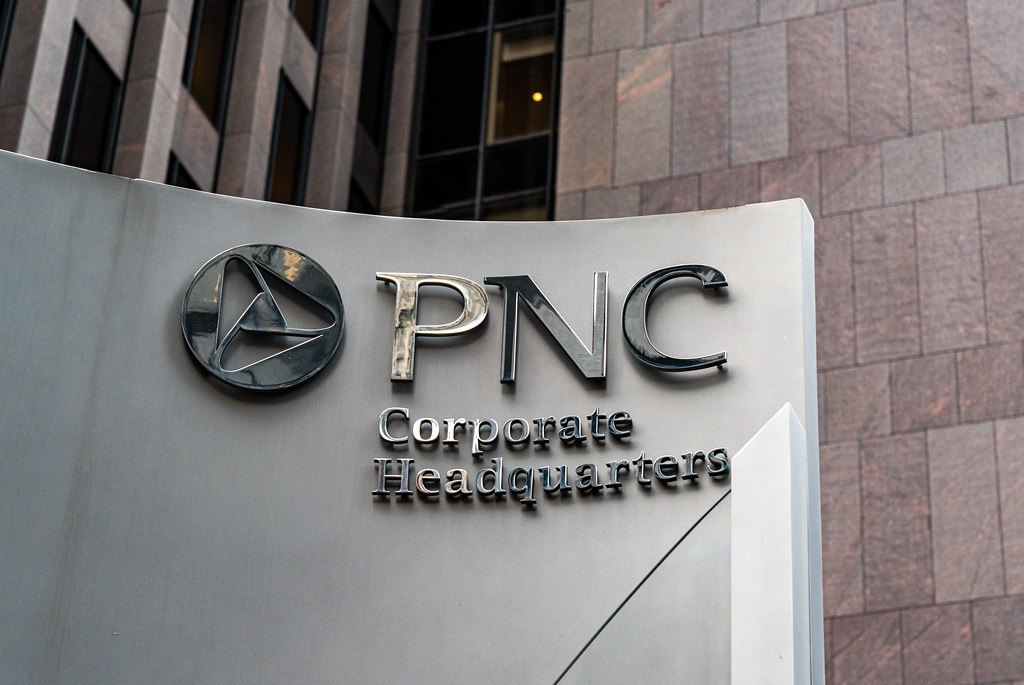When homeowners need funds beyond just buying a house, a world of borrowing solutions becomes available. From financing a kitchen remodel to consolidating debt or covering large personal expenses, PNC Home Loans offers flexible and strategic ways to leverage your existing home equity. These options go beyond traditional mortgages and fit the evolving needs of modern households.

If you’re looking for more than just a standard home purchase loan, PNC Home Loans could be the answer. This guide will explore what they are, how they differ from mortgages, who qualifies, and how to apply. Whether you’re planning to renovate, borrow for education, or need quick access to funds, this article breaks down everything you need to know about home lending solutions from one of America’s most trusted banks.
Getting to Know PNC Financial Services Group
Before diving into the specifics of PNC Home Loans, it’s important to understand the bank behind the service. PNC is a long-standing financial institution with a national reputation for customer service and innovation. Knowing who you’re borrowing from builds trust, and PNC’s track record speaks for itself. This section explores the bank’s history and the wide range of services it offers to consumers and businesses.
History of PNC Financial Services Group
PNC Financial Services Group has a rich history that dates back to 1852, when the company was originally established as the Pittsburgh Trust and Savings Company. Over the years, the bank expanded through a series of significant mergers, including the 1983 union of Pittsburgh National Corporation and Provident National Corporation. This pivotal moment gave rise to the name “PNC” and laid the foundation for PNC’s modern identity. Furthermore, this merger marked the beginning of its national growth strategy.
PNC is headquartered in Pittsburgh, Pennsylvania, and has since become one of the largest and most respected banks in the United States. The bank ranks among the top 10 U.S. banks by total assets and operates in more than 20 states. Additionally, it maintains a physical presence that includes over 2,600 branches and more than 9,000 ATMs. With its deep roots and financial strength, PNC continues to serve as a reliable partner for millions of individuals, families, and businesses across the country.
Services of PNC Financial Services Group
PNC operates as a full-service financial institution, providing an extensive range of banking products for individuals, businesses, and institutions. The bank designs its services to support everyday banking needs while also addressing long-term financial planning requirements. Key offerings include:
- Credit Cards: Options for both consumers and businesses, offering cashback, rewards, and travel benefits.
- Personal and Joint Checking Accounts: Feature-rich accounts with digital access, overdraft options, and spending tools.
- Mortgages and Home Equity Loans: Flexible terms for home purchases, refinancing, or borrowing against home value.
- Auto Loans: New and used car financing, as well as refinancing for better rates.
- Business Services: A complete suite of tools under the PNC Business Services, tailored to businesses of all sizes.
- Investment & Retirement Planning: Services for IRAs, mutual funds, and wealth management strategies.

Additionally, PNC’s digital infrastructure enhances customer experience through mobile apps, virtual wallets, and online financial planning tools, making banking both accessible and efficient.
Types of PNC Home Loans
While many people are familiar with mortgages used to buy a home, fewer are aware of the flexible borrowing options available to current homeowners. PNC Home Loans represent a broader category of lending that allows you to tap into your home’s equity for other financial needs. In this section, we’ll explore what home loans are, how they differ from mortgages, and the main types of PNC Home Loans available today.
What Are PNC Home Loans?
When deciding how to unlock the value of your home, it’s important to choose the right borrowing method. PNC Home Loans include several distinct options that serve different financial needs, each with its own structure, repayment plan, and ideal use case. Below is a more detailed explanation of each type, helping you find the best match for your situation.
PNC Home Loans vs. Mortgages
Before deciding which lending product fits your needs, it’s helpful to understand how PNC Home Loans differ from traditional mortgage offerings. Here’s a clearer look at the differences:
Loan Purpose:
- Mortgages are used to finance the purchase or refinance of a home.
- Home loans are designed to access home equity for other needs such as remodeling, education, or debt repayment.
Loan Structure:
- Mortgages are typically first-lien loans; the lender has primary claim if the borrower defaults.
- Home equity loans and HELOCs are usually second-lien loans, meaning they follow the primary mortgage in priority.
Disbursement Style:
- Mortgages offer a lump sum that goes directly to the seller (in purchases) or to pay off a previous loan (in refinances).
- Home equity loans provide a fixed lump sum to the borrower, while HELOCs offer a revolving credit line that can be drawn over time.
Repayment Type:
- Mortgages typically have fixed or adjustable monthly payments based on the total loan amount.
- Home equity loans also offer fixed payments, but HELOCs may allow interest-only payments during the draw period.
Use Case:
- Mortgages are for acquiring or refinancing a home.
- PNC Home Loans serves broader goals: home improvements, medical bills, tuition, or even emergency needs.

Once you’ve evaluated whether a mortgage or a home loan better fits your financial situation, it may also be a good time to explore Checking or Savings Accounts to manage the flow of funds from these products efficiently.
Home Equity Loans (Lump Sum)
A home equity loan from PNC allows you to borrow a specific amount of money in one single payout. This product is one of the most popular PNC Home Loans, designed around the equity you’ve built in your home over time. Once approved, you receive a fixed lump sum, making it an excellent choice for well-defined expenses.
- Fixed interest rate: You lock in your rate at the time of borrowing, so your monthly payments stay the same throughout the life of the loan. This predictability can help with long-term budgeting.
- Flexible term lengths: PNC offers terms ranging from 5 to 30 years, allowing you to choose a repayment plan that aligns with your financial comfort.
- Secured by your home: This loan is typically a second lien, meaning it sits behind your existing mortgage. However, if you don’t currently have a mortgage, it may become a first lien.
Among PNC Home Loans, this option is especially useful for major renovations, medical expenses, or debt consolidation, where a single, upfront amount is needed. And when paired with PNC checking for automatic payments, managing your loan becomes even easier.
HELOC – Home Equity Line of Credit
Unlike a lump sum loan, a Home Equity Line of Credit (HELOC) offers a revolving credit limit that you can borrow from as needed. As part of the PNC Home Loans portfolio, a HELOC gives you more flexibility over time. You can draw funds during a specific time window (typically 10 years) and repay either in part or in full, depending on your needs.
- Variable interest rate: Your rate may fluctuate based on market conditions, which can affect monthly payments.
- Flexible access to funds: Withdraw money multiple times as long as you stay within your credit limit, making it ideal for intermittent or recurring expenses.
- Interest-only payments available: During the draw period, you may only be required to pay interest on what you use, not on the full credit limit.
As one of the more flexible PNC Home Loans, a HELOC works well for tuition costs, ongoing home improvements, or unpredictable expenses. After setting up a HELOC, you can easily manage your balance and transfers via PNC’s online or mobile banking platform.
Cash-Out Refinance
If you’re looking to restructure your current mortgage while gaining access to home equity, a cash-out refinance may be the best fit. This option within PNC Home Loans lets you replace your existing mortgage with a larger one. The difference between your old balance and the new loan amount is paid to you in cash.
- Ideal for larger borrowing needs: Access more equity than a typical HELOC or home equity loan might allow.
- Potential for better terms: Depending on your credit and market rates, you may secure a lower interest rate than your original mortgage.
- Includes closing costs: Since this is a full mortgage refinance, expect to pay fees similar to your original mortgage process.
Among the broader suite of PNC Home Loans, this solution is well-suited for homeowners seeking to unlock substantial equity while also refinancing their loan for improved terms. Once you’ve streamlined your home financing, consider using a Credit Card to manage everyday expenses and build credit.
Renovation or Construction Loans
For homeowners planning extensive work or building a new property, PNC also offers renovation and construction loans. These specialized options fall under the PNC Home Loans umbrella and can be structured as part of a home purchase or as separate equity-based loans, depending on your situation.
- Staged disbursement: PNC releases funds in installments based on project milestones, ensuring proper use and budget control.
- Lien flexibility: These loans may be placed as either first or second liens, depending on your existing home financing setup.
- Eligibility requirements: Large-scale remodels may require contractor agreements, permits, or project documentation during the approval process.

These unique PNC Home Loans are excellent for contractor-managed renovations, new construction, or any major improvements that unfold over time. If you’re managing a build or significant home upgrade, you may also benefit from Business Banking tools for contractor payments and cash flow tracking.
Why Choose PNC Home Loans?
Choosing PNC Home Loans means more than just borrowing; it means accessing a complete financial solution backed by one of the most trusted banks in the country. Whether you’re interested in fixed or variable rates, lump sums or flexible lines of credit, PNC delivers a range of options that align with different goals.
- Reputation and reliability: PNC is a nationwide lender with over a century of experience.
- Loan flexibility: From term length to borrowing structure, you choose what works for you.
- Digital convenience: Manage loans, transfer funds, and monitor balances from anywhere.
- Variety of solutions: Whether it’s equity, renovation, or refinancing, there’s a product that fits.
And as you explore home lending options, don’t forget that PNC also offers Investing Service to grow your long-term wealth alongside your property’s value.
Eligibility Requirements for PNC Home Loans
Not everyone can qualify for a home loan, and each product comes with its own set of requirements. Whether you’re considering a home equity loan, a HELOC, or a cash-out refinance, it’s crucial to know if you and your property are eligible. This section outlines who is eligible to apply for PNC Home Loans, the criteria the property must meet, and other important conditions to consider before applying.
Who can apply for PNC Home Loans?
PNC evaluates borrowers based on income stability, creditworthiness, and overall financial health. To be eligible for PNC Home Loans, applicants must meet several baseline conditions:
- U.S. citizenship or permanent residency: You must be a legal resident or citizen to qualify.
- Credit score requirements: Most loan types require a minimum credit score of 620–660, though higher scores improve your chances for approval and better rates.
- Stable and verifiable income: You’ll need to show income consistency through W-2s, recent tax returns, or bank statements.
- Debt-to-income (DTI) ratio: PNC reviews your current debts compared to your income. Your DTI should fall below the lender’s internal thresholds to be considered manageable.
Meeting these personal criteria increases your chances of approval, but your property must also meet certain standards. Once you know you qualify personally, the next step is to look at the property requirements.
Property Eligibility for PNC Home Loans
The property you’re borrowing against is the collateral for your loan. Because of that, PNC has specific guidelines for which types of homes are acceptable:
- Owner-occupied properties preferred: Most PNC Home Loans are designed for homes you live in, not investment or vacation properties.
- Eligible property types: Single-family homes, townhouses, and condos generally qualify. These are the most common residential structures eligible for equity lending.
- Ineligible property types: Some manufactured or mobile homes may not qualify, depending on location and foundation structure.
- Location requirements: Your home must be located in a state where PNC operates, as lending licenses and property laws vary by region.
Making sure your home meets these guidelines helps avoid delays and reduces the chance of application rejection.

Additional Considerations
Aside from borrower and property criteria, PNC also evaluates financial risk using additional property-based metrics:
- Loan-to-value (LTV) ratio: Most second-lien loans (like home equity products) require a maximum LTV of 80%. This means you must retain at least 20% ownership in your home after the loan.
- Property appraisal: PNC may require a professional appraisal to confirm the current value of your home and determine how much equity is available.
- Existing mortgages and liens: Any current obligations on the home (like your first mortgage) reduce your available equity. PNC takes these into account when calculating your borrowing power.
After evaluating eligibility for PNC Home Loans, some applicants may find they don’t need to borrow against their home at all. In that case, consider Personal Loans, which offer unsecured funding with faster processing and no collateral required.
PNC Home Loans: Documents and Application
Applying for a PNC Home Loan is a structured process that requires the right documentation and a few key steps. While the process is generally straightforward, being prepared ahead of time will help speed things up and reduce the chance of delays. In this section, you’ll find a list of required documents, a breakdown of the application stages, and additional notes to guide you through from start to finish.
Required Documents
Before applying for a loan, gather the necessary paperwork to support your application. PNC uses these documents to verify your identity, income, property details, and debt obligations. Having everything ready can help you move through the process more quickly and with fewer back-and-forth requests.
- Proof of identity: Submit a government-issued photo ID such as a driver’s license or passport.
- Proof of income: Include recent pay stubs, W-2 forms, and tax returns. If you’re self-employed, be prepared to submit additional documents like bank statements and profit/loss statements.
- Proof of property: Provide a copy of your property deed, mortgage statement, or title documentation to confirm ownership and existing obligations.
- Homeowners insurance: Show proof of active home insurance coverage, as this is required for any home-secured loan.
- Debt and obligations: Prepare a list of your monthly financial obligations, including credit card payments, loans, and alimony (if applicable), to help PNC calculate your debt-to-income ratio.
Organizing these documents in advance will make your loan application smoother and reduce the chances of last-minute issues.
Application Process
After preparing your documents, the next step is to begin the application process for PNC Home Loans. Fortunately, PNC offers a clear, step-by-step approach that guides you from early inquiry to full loan management.
1. Pre-qualification (optional)
Initially, consider using PNC’s Home Equity Quick Check Tool. This allows you to estimate your loan eligibility without impacting your credit. As a result, you can explore your options early and make informed decisions.
2. Formal application
Once you’re ready to move forward, submit your full application along with the required documentation. At this stage, PNC may order a home appraisal to confirm your property’s current value and calculate available equity.

3. Underwriting review
Next, PNC will conduct a thorough review of your income, credit history, property data, and debt obligations. If anything needs clarification, the underwriting team may reach out for additional information to keep the process moving smoothly.
4. Loan approval and closing
After the review, if your application is approved, you’ll move on to closing. You can sign the documents electronically or in person, depending on your preference. Then, PNC will release the funds, either as a lump sum, direct deposit, or HELOC credit line, depending on the loan type.
5. Post-closing management
Finally, once your loan is active, you can manage everything through PNC Online Banking or the mobile app. You’ll be able to track your balance, schedule payments, and stay in control of your loan anytime, anywhere.
Each step in this process is designed to keep things organized and stress-free. If you appreciate this structured experience, consider exploring Business Banking Accounts, which offer the same level of clarity and control.
PNC Home Loans: Terms, Rates, and Fees
Before committing to any loan, it’s important to understand what you’re agreeing to, especially when it comes to how long you’ll repay the loan and how much it might cost over time. PNC Home Loans come with defined repayment terms, interest structures, and, in some cases, associated fees. Choosing the right loan means balancing flexibility, affordability, and repayment comfort. This section outlines the standard terms and durations so you can make an informed financial decision that aligns with your goals.
Loan Terms and Due Dates
Each PNC Home Loan product comes with a unique timeline for repayment. These terms affect your monthly payments, total interest paid, and overall flexibility, so it’s important to choose a structure that fits your financial plan.
- Home Equity Loan: If you choose a fixed home equity loan, PNC offers repayment terms ranging from 5 to 30 years. You’ll make regular monthly payments over the life of the loan, and your fixed interest rate ensures consistency in budgeting.
- HELOC (Home Equity Line of Credit): With a HELOC, the repayment timeline is divided into two distinct phases. First, there’s a 10-year draw period, during which you can borrow as needed and pay interest on the amount used. After that, you enter a 20-year repayment period, where you’ll begin repaying both principal and interest.
- Cash-Out Refinance: This option typically comes with repayment terms of 15 or 30 years, similar to traditional mortgages. It’s ideal if you want to refinance and borrow equity at the same time while locking in long-term stability.

In many cases, you can early payoff without a prepayment penalty, giving you flexibility if you decide to settle your balance ahead of schedule. However, it’s always wise to review your loan agreement carefully for any exceptions.
PNC Home Loans Rates and Fees
When borrowing against your home, the interest rate plays a critical role in determining the cost of the loan over time. Alongside the rate, you should also consider fees that may apply during the loan process. PNC Home Loans offers competitive rates, but the actual figures depend on several key factors unique to your situation.
Rates are not one-size-fits-all. Instead, PNC tailors them based on your credit score, loan amount, home value, and geographic location. Borrowers with higher credit scores and lower debt-to-income ratios typically qualify for more favorable rates. Additionally, different loan types, such as home equity loans versus HELOCs, carry distinct rate structures (fixed vs. variable).
To see what rate you might qualify for, it’s best to use PNC’s Online Rate Quote Tool. It gives you a personalized estimate without impacting your credit score and helps you make an informed borrowing decision.
In addition to interest, be aware of potential fees, which may include:
- Origination fees: A one-time charge for processing and setting up your loan.
- Appraisal costs: Covers the cost of evaluating your home’s market value.
- Annual maintenance fees (for HELOCs): A yearly fee to keep your credit line open, even if unused.
- Closing costs (for refinance loans): Includes fees for title services, paperwork, and final processing, usually a percentage of the loan amount.
| Product Type | Interest Type | Estimated APR (as of 2025) | Other Fees |
| Home Equity Loan | Fixed | 7.25% – 9.50% | Origination, title, appraisal |
| HELOC | Variable | Prime + margin (start ~8.50%) | Annual fee, late fee, appraisal |
| Cash-Out Refinance | Fixed/Variable | 6.75% – 8.25% | Closing costs (1%–3% of the loan) |
These costs can vary by product, so it’s important to read all disclosures before signing.
Once your home loan is secured, you might also consider PNC’s fixed-rate Credit Cards, which provide added flexibility for managing smaller or recurring expenses.
PNC Home Loans: Bonus Benefits
Beyond the loan itself, PNC offers a range of added features and benefits to make borrowing easier and more rewarding. From powerful online tools to expert support and educational resources, PNC created Home Loans with the customer experience in mind. In this section, you’ll discover the value-added perks that set PNC apart from other lenders.
Digital Convenience
PNC integrates modern technology into its lending services, giving you full control over your home loan through online and mobile platforms. You can easily:
- Manage your account using PNC’s secure digital tools anytime, anywhere.
- Upload documents and sign paperwork electronically, reducing the need for in-person visits.
- Track your loan activity in real time, including balances, payment due dates, and interest charges.
This level of digital access ensures a seamless borrowing experience, especially for busy homeowners or remote applicants.
Educational Tools
If you’re new to home equity borrowing or want to make smarter financial decisions, PNC provides a library of helpful resources. These include:
- Interactive calculators to estimate borrowing limits and monthly payments.
- Comparison tools to help evaluate different loan types and interest structures.
- Budgeting guides tailored to homeowners looking to manage debt or plan renovations.
These resources empower you to borrow with confidence and plan your repayment strategy effectively.

Personalized Support
Even with great digital tools, sometimes you need expert advice. PNC offers a strong support network to guide you through every step of the process. You can:
- Schedule one-on-one meetings with a dedicated loan officer.
- Speak directly with support staff who specialize in home lending.
- Choose between in-person or virtual appointments, depending on your preference and location.
This combination of technology and human support makes borrowing through PNC both convenient and reassuring.
If you appreciate digital control and responsive service, you may also benefit from other loan services, which offer seamless integration with your Home Loans for easy transfers, payments, and budget tracking.
FAQs about PNC Home Loans
Even after reviewing all the details, borrowers often have follow-up questions. This section answers the most common inquiries about PNC Home Loans, covering everything from fund usage to approval timeframes and repayment terms. If you’re still unsure about anything, the answers here may help you feel more confident moving forward.
What’s the difference between a HELOC and a credit card?
- A HELOC is secured by your home and typically offers a lower interest rate. Credit cards are unsecured and best for smaller expenses.
Can I use a home equity loan to pay for college?
- Yes, but it’s important to compare with student loan options first.
What’s the maximum I can borrow with PNC Home Loans?
- This depends on your home’s value, equity, credit score, and existing debt. Typically, 80% loan-to-value is the cap.
How soon can I access funds after approval?
- For equity loans, funds may be available within 10–14 business days. For HELOCs, you may access funds during the draw period immediately after closing.
Do I need to use my current mortgage lender to apply for a PNC Home Loan?
- No, but your existing mortgage and property details will factor into your equity eligibility.
For those looking into advanced loans for a car, Auto Loans may also help with budgeting your future vehicle.
PNC Home Loans offers more than just traditional mortgage financing; they empower homeowners to unlock their property’s value for smart, flexible, and purposeful borrowing. Whether you’re renovating, consolidating, or funding a life milestone, PNC provides the tools, expertise, and variety of options to support your goals.
